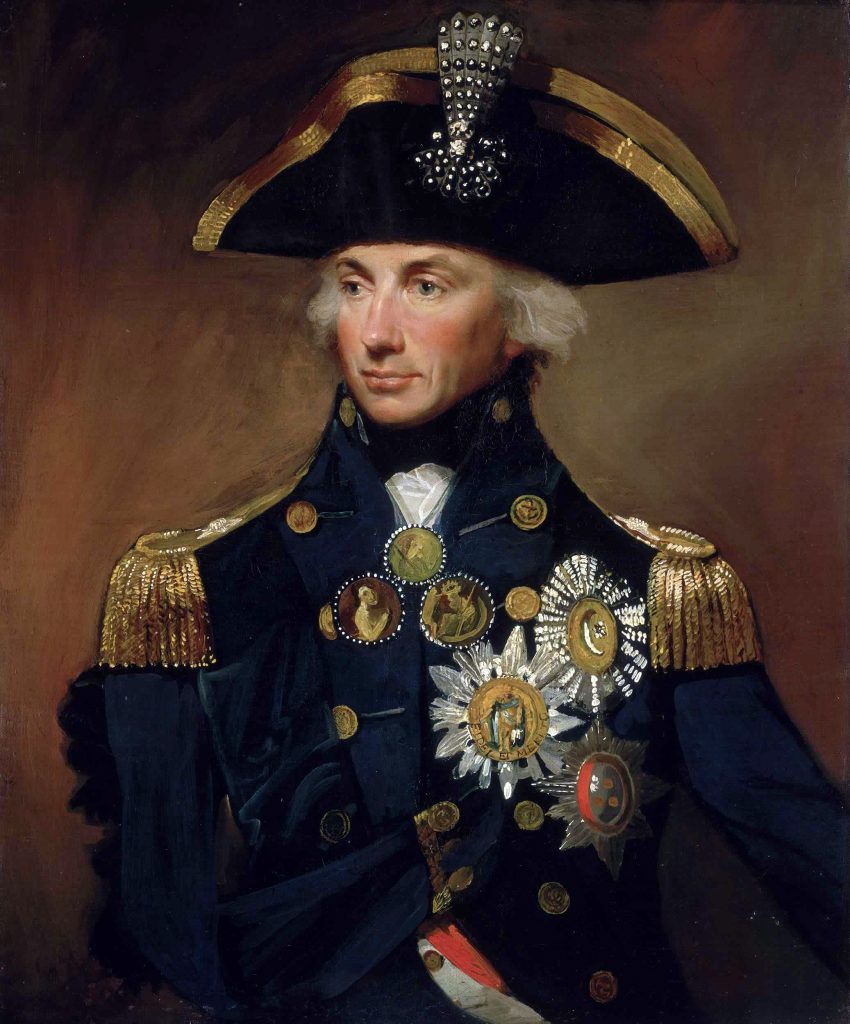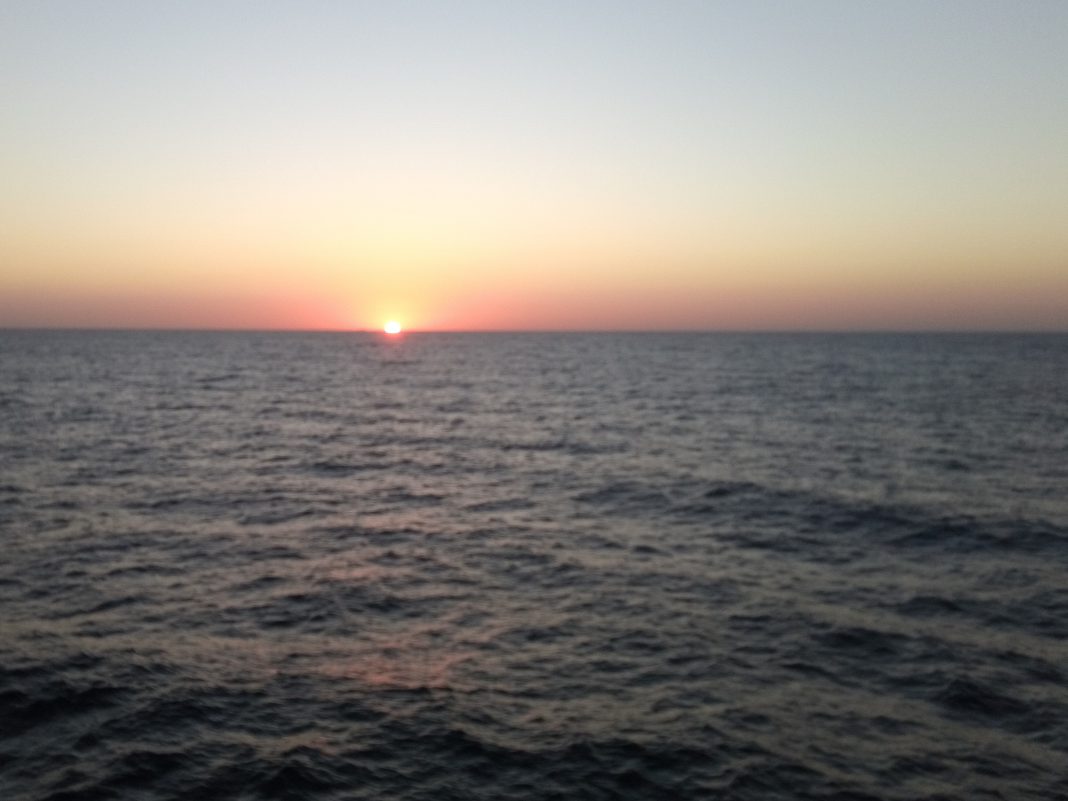A few weeks ago I was on a ferry travelling from Cadiz in southern Spain to the Canary Islands. The date was October 26, the weather was warm and calm and a brief look at our intended course showed that we would be passing through waters that have had a significant effect on our country’s history. For it was here that, 216 years and 5 days from the moment I was looking out at the blue Atlantic, a British fleet under the command of Admiral Lord Nelson soundly defeated a combined (and larger) French and Spanish fleet under Admiral Villeneuve.
Just another battle and another date for schoolchildren to remember? It was so much more than that. Up to that point the French tyrant, Napoleon Bonaparte had had ambitions to invade England and had he succeeded in this our subsequent history could have been so different.

However, he needed command of the sea to ensure safe crossing of the English Channel for his troops, and to get that he needed to neutralise the Royal Navy. Nelson’s victory and the complete destruction of the enemy fleet ensured that he would never get the control he required and invasion plans were abandoned. 10 years later Bonaparte was defeated and in exile and the period of nearly 100 years of ‘Pax Britannia’ began.
As a strategic port on the south coast, Rye was in the front line, and with limited defence troops on home soil an invasion by the French would almost certainly have resulted in a sacking similar or worse than that of 1377, so we have Nelson to thank for the preservation of so much that we love about our town.
This, therefore, was a vitally important victory. When I was young, October 21 was always celebrated as ‘Trafalgar Day’ and its significance remembered. And yet, looking in my diary I see that while dates such as International Women’s Day and United Nations Day (whatever they may mean) are noted by the publishers, Trafalgar Day is ignored.
To add further ingratitude, we now see that one of our greatest heroes is in danger of being ‘cancelled’ by the woke lefty mob because he did not openly support the campaign to abolish slavery. Hardly surprising as he was a naval officer whose ships were manned in part by impressed men – ordinary citizens swept of the streets by the press gang and only one stage removed from slavery. In addition slavery had been around for thousands of years (for example, who built the pyramids? Unionised Egyptian labour – hardly) and, rightly or wrongly, was part of life at that time when there were very different views to those of today on race and the value of life.
We should not forget that not all slaves fitted the black stereotype. White slavery, too, had been around for almost as long, and indeed the Barbary pirates from north Africa even invaded the West Country carrying off whole villages into slavery in their country and to be sold eastwards. This only stopped when in the early 19th century a British fleet was sent to destroy them.
Wokery in all its guises, and led by individuals, largely from the left, who will brook no argument regarding their views and who seem to think that those of us who are descended from the indigenous inhabitants of this land (i.e. the vast majority of us) should apologise for being who we are, are not only wrong and, frankly stupid (and I don’t care how many eminent university professors come into this category – they are the worst, for they should know better and therefore have no excuse), but are doing this country an enormous disservice.
Our heroes and role models are important, our children should be taught about them, they should be held in high esteem for their achievements which, in turn, should be regarded in the light of the times in which they lived, and not by the misguided actions of today’s thought police.
Image Credits: John Minter .




Maya Angelou reads her poem “A Brave and Startling Truth” which she wrote in commemoration of the UN’s 50th Anniversary, in 1995:
https://www.youtube.com/watch?v=UjEfq7wLm7M
Pale Blue Dot.
Look again at that dot. That’s here. That’s home. That’s us. On it everyone you love, everyone you know, everyone you ever heard of, every human being who ever was, lived out their lives. The aggregate of our joy and suffering, thousands of confident religions, ideologies, and economic doctrines, every hunter and forager, every hero and coward, every creator and destroyer of civilization, every king and peasant, every young couple in love, every mother and father, hopeful child, inventor and explorer, every teacher of morals, every corrupt politician, every “superstar,” every “supreme leader,” every saint and sinner in the history of our species lived there–on a mote of dust suspended in a sunbeam.
The Earth is a very small stage in a vast cosmic arena. Think of the rivers of blood spilled by all those generals and emperors so that, in glory and triumph, they could become the momentary masters of a fraction of a dot. Think of the endless cruelties visited by the inhabitants of one corner of this pixel on the scarcely distinguishable inhabitants of some other corner, how frequent their misunderstandings, how eager they are to kill one another, how fervent their hatreds.
Our posturings, our imagined self-importance, the delusion that we have some privileged position in the Universe, are challenged by this point of pale light. Our planet is a lonely speck in the great enveloping cosmic dark. In our obscurity, in all this vastness, there is no hint that help will come from elsewhere to save us from ourselves….
There is perhaps no better demonstration of the folly of human conceits than this distant image of our tiny world. To me, it underscores our responsibility to deal more kindly with one another, and to preserve and cherish the pale blue dot, the only home we’ve ever known.
— Carl Sagan
[NOTE from moderator: There is a Youtube recording of Carl Sagan reading the text above https://www.youtube.com/watch?v=wupToqz1e2g ]
Sadly, this piece isn’t about Nelson, and it’s not about Trafalgar. I’m not aware of Nelson being ‘cancelled’, and last time I strolled through Trafalgar Sq – arguably our nation’s most internationally famous landmarks – I didn’t feel that Trafalgar had been erased. I think people across the country living in Trafalgar Terrace, or Trafalgar Street or Trafalgar Rd etc etc etc, would agree. Ironically, the world’s most noted campaigner against the slavery of Apartheid was actually named after your hero. His name was Nelson Mandela. I think the Admiral’s alive and well in the public consciousness, to be frank.
To me, this article is actually about venting a personal grievance and propagating the counter-intuitive, and rather self-pitying notion, that the majority are in fact an oppressed minority… This is so self-evidently wrong I’ll assume it doesn’t need further explanation.
Further, this notion of “indigenous inhabitants” is a purely colloquial and totally unscientific illusion. At a genetic level, this concept of racial distinction is a myth that’s only really of utility to groups with pretty warped agendas. It’s what Apartheid was based upon, and it’s also what National Socialism was based upon. If you actually want to articulate regret that cultures and places and habits change, fair enough. I feel a pang of nostalgia for things sometimes too. But it’s nothing to do with race and genetics.
The world does move on, and what seemed OK in the past isn’t OK now. That’s why, despite what the Egyptians might have done thousands of years ago, we don’t use slaves and indentured labour in Britain today. Time’s change. That’s why Empire Day’s gone out of fashion and I suspect even you don’t celebrate the relief of Mafeking… Nelson’s still a part of our national pantheon, but new heroes arise – characters contemporary people can relate to. Accepting that is part of life. It doesn’t mean Nelson’s forgotten.
As a parting thought, John, I think if you can equate the kidnap of 60 Cornishmen in 1625 with 400 years of Atlantic slave trading, which possibly involved as many as 12 million Africans, then you’re looking through the wrong end of Nelson’s famous telescope…
The Royal Navy and Royal Marines still commemorate Trafalgar Day.
I remember that October 21st is Trafalgar day each year. I was born in Blackheath so Greenwich was only down the road..and the Naval college and the Painted Hall Maritime museum were all part of my life..
GH , I have also heard about the relief of Mafeking and Ladysmith, as I was told the family had two prints on the wall of each place. They must have been on the walls into 1920’s. That’s the interesting thing of family history it can link our present with the past and can give a glimpse into various aspects of understanding of the Greater historical facts.
My last comment on this thread didn’t ever appear for some unknown reason, but just to reassure John that Nelson’s alive and well in the national narrative:
Radio 4, 2nd Dec 09.00: In Our Time: The Battle of Trafalgar.